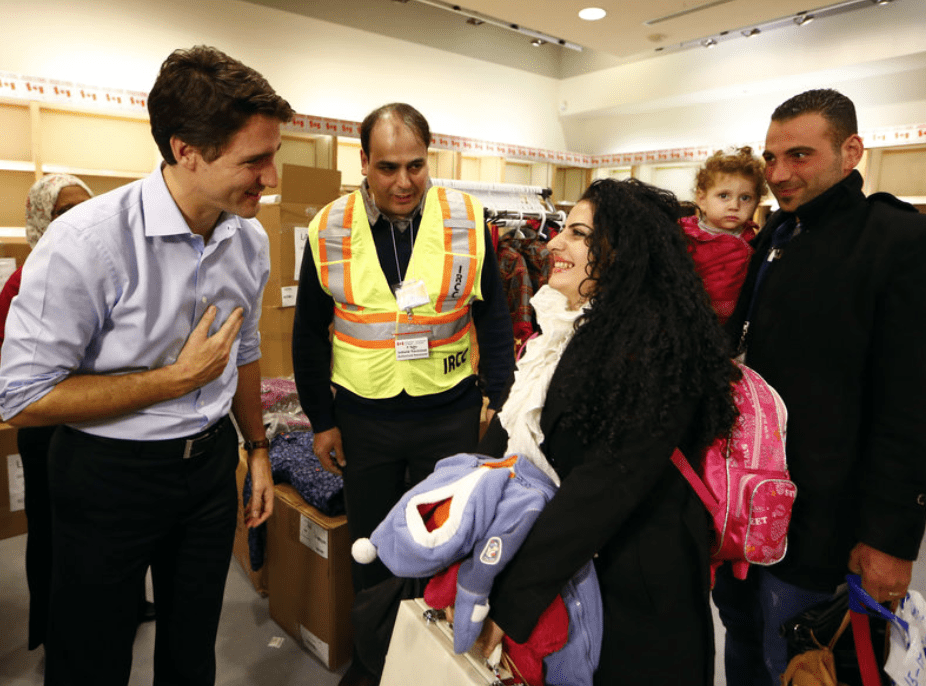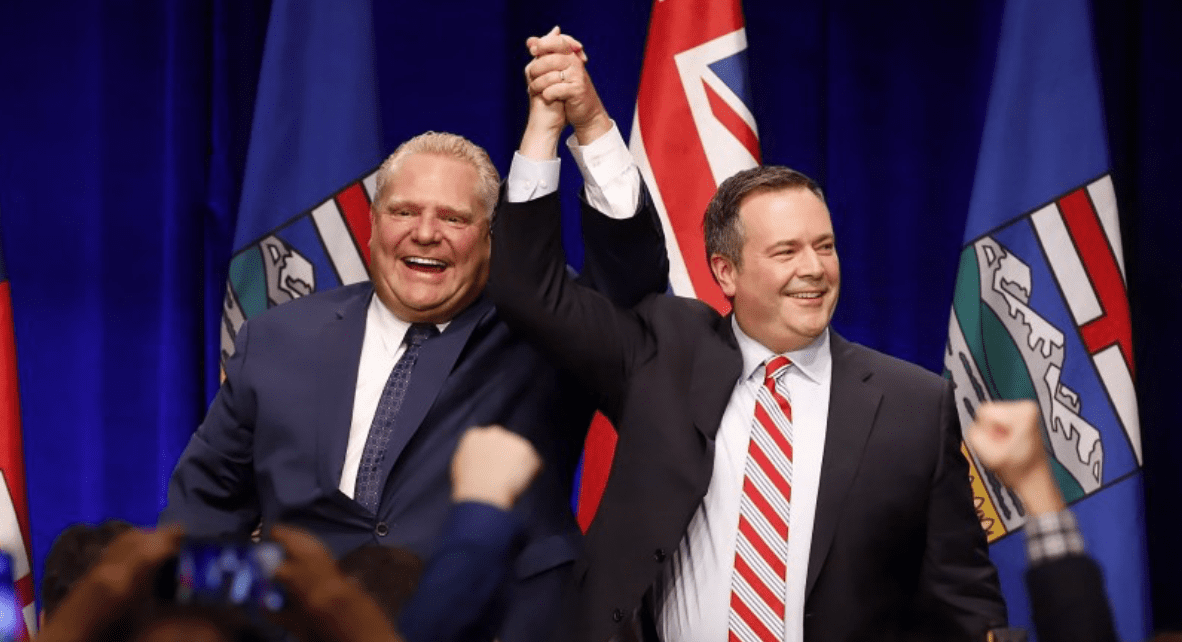For the past two years, the Conservatives have been building a false narrative around the state of the Canadian border, and the stream of asylum seekers crossing from the US to make a claim in Canada, and misleading people by conflating the refugee and asylum process with immigration. When the RCMP made arrests on Thursday in Kingston last Thursday night on a national security matter, the Conservatives were quick to rush to the microphones to draw a link between the arrests and refugee screening in Canada never mind that we haven't had any cases of refugee claimants being involved in terrorism, and that the vast majority of terror-related incidents in Canada involved people born in Canada. And yet, the Conservatives had persisted in creating this narrative in order to create a wedge with the Liberal government, facts be damned.
To be clear, there are issues with the way this government is handling the asylum seeker file, but those largely have to do with the way in which the Immigration and Refugee Board continues to be under-resourced and under-staffed. Yes, the government did give them more money and yes, the IRB has found some efficiencies, but it's not enough to deal with the magnitude of the situation, and even if they did double their budget, it would take even more time to appoint new tribunal members and get them the capacity necessary to start clearing through the backlog of cases, but that is something that is absolutely fixable if they want to put the time and resources into it. And to be fair, they have had success in stemming the flow of asylum claimants in various ways, such as going directly to the communities that were coming over the border like Haitians in the U.S. who were about to be deported and corrected misinformation that was being spread to them, and the numbers dropped off. They were replaced by other claimants, this time from Nigeria who got tourist visas for the U.S., but again, they worked with the two governments and again the numbers dropped off, so you can't claim they haven't done anything. Just not enough.
The Conservatives have meanwhile tried to pretend that there is a quick-fix to the issue of the Safe Third Country agreement at the border that allows these asylum claimants to make an inland claim outside of a regular border crossing. In their estimation, Canada can unilaterally declare the entire length of the border to be an "official port of entry" for the purposes of that agreement in order for us to deny the ability to accept these claims, never mind that there would be no way to actually enforce this, or the fact that it would simply create a problem of would-be asylum seekers who don't end up registering with CBSA at an inland port of entry after they cross at more remote and dangerous locations, but why should facts matter when you're trying to build a narrative?
The other false narrative that they have been trying to build is that, somehow, these asylum seekers are taking resources away from economic immigrants. This isn't a new narrative Jason Kenney would peddle it constantly when he was immigration minister, but no matter that it was debunked then, Kenney and the other Conservatives would keep promoting it. The notion that refugee claimants and asylum seekers somehow keep "law-abiding" immigrants from coming in, or that they can somehow "jump the queue," has been used to try and turn immigrants against refugee claimants and asylum seekers for the sake of trying to gain political points. It's entirely false there is no queue for refugees or asylum seekers, but a process that helps ensure that the most vulnerable are able to be given status in Canada, and it means ensuring that they have the documentary evidence to prove their claims something that the IRB needs better resources to deal with. Immigrants are a separate process, with separate staff, and separate resources, even though they are housed in the same federal department. Even at the IRB, the tribunal members who determine immigration appeals and refugee claims are separate. One doesn't take away from the other, and yet they push this narrative to score points.
Which brings us to the other false notion that they are trying to push that the federal government resettling Syrian refugees and not sufficiently "securing" the American border has created a problem of would-be terrorists entering the country. Never mind that there is absolutely no evidence of this, and even if, on the odd chance, that we did admit a radicalized extremist as part of refugee resettlement or someone who crossed the border irregularly and the vetting process upon registration didn't catch someone, the incidence is so low as to be almost statistically zero. But again, this is where the facts don't matter for the service of the narrative, and that they can't present easy solutions to the problem of those who are born in Canada who become radicalized is inconvenient. Instead, it's easier to present a false notion that we are somehow under siege and that the Liberal government is asleep at the switch and endangering the lives of Canadians.
It's not a stretch to note that this kind of rhetoric is Trumpian in nature, and has the same intended effect of using falsehoods to rile up low-information voters in order to try and make them angry enough to vote in certain ways. We've seen it be used in Canada recently to stoke populist outrage that is being seen in the kinds of xenophobic language employed by followers of Rebel Media, and among the so-called "Yellow Vest" followers in some parts of the country, where anger over pipelines has been enmeshed with concerns over border security and conspiracy theories about the UN plotting a world government. By stoking this kind of paranoia, Andrew Scheer and his Conservatives think that they can try and create a wedge that will attract voters to them with the promise of easy solutions that don't actually exist in the real world, apparently unaware that the anger they are fomenting doesn't easily dissipate when a new government doesn't have the magic wand they claimed to have. It's a dangerous game they're playing, and it will have longer-term consequences than they think.
Photo Credit: NPR








